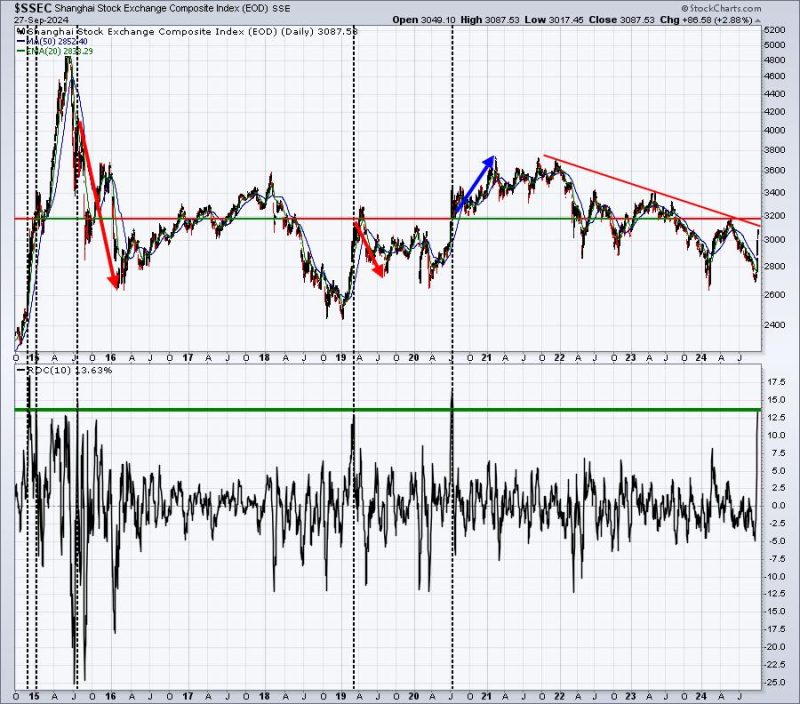The recent surge in China’s stock market has captured the attention of investors worldwide. However, the question on everyone’s mind is whether this newfound strength can be sustained in the coming weeks. Let’s delve into the factors that have contributed to China’s market performance and assess the sustainability of this trend.
One of the key drivers behind China’s market strength has been the country’s robust economic recovery following the COVID-19 pandemic. China’s economy bounced back quicker than most other major economies, with strong manufacturing and export data buoying investor sentiment. The government’s efforts to stimulate economic growth through various policy measures, including infrastructure spending and supportive monetary policies, have also played a crucial role in driving up stock prices.
Moreover, improved trade relations with the United States have alleviated some of the geopolitical tensions that have weighed on Chinese markets in the past. The signing of the Phase One trade deal and recent commitments to increase agricultural purchases have provided a much-needed boost to investor confidence.
Another factor contributing to China’s market strength is the influx of foreign capital seeking higher returns in a low-interest rate environment. China’s relatively higher interest rates compared to other major economies, coupled with the potential for capital appreciation, have made its stock market an attractive destination for global investors.
Additionally, the rise of technology stocks, particularly those listed on the STAR Market, has been a major contributor to China’s market rally. Companies in sectors such as e-commerce, artificial intelligence, and electric vehicles have seen their valuations soar, attracting domestic and foreign investors alike.
Despite these positive developments, there are several factors that could potentially derail China’s market momentum in the coming weeks. One key risk is the possibility of renewed tensions between China and the United States, particularly as the geopolitical landscape remains uncertain. Any escalation in trade disputes or conflicts could spook investors and lead to a sell-off in Chinese stocks.
Furthermore, concerns about an overheated market and inflated valuations could prompt a correction in Chinese stocks. The rapid rise in stock prices without a corresponding improvement in underlying fundamentals raises the risk of a market pullback as investors reassess their positions.
Moreover, China’s ongoing regulatory crackdown on sectors such as fintech and education has raised concerns about government intervention in the market. Uncertainty surrounding regulatory policies and their potential impact on companies’ profitability could weigh on investor sentiment and lead to increased volatility in Chinese markets.
In conclusion, while China’s market strength in the past week has been impressive, the sustainability of this trend remains uncertain. Investors should closely monitor key developments, such as geopolitical tensions, regulatory changes, and economic indicators, to gauge the future trajectory of Chinese stocks. Adapting a cautious yet vigilant approach in navigating the Chinese market could help investors mitigate risks and capitalize on opportunities in this dynamic investment landscape.
